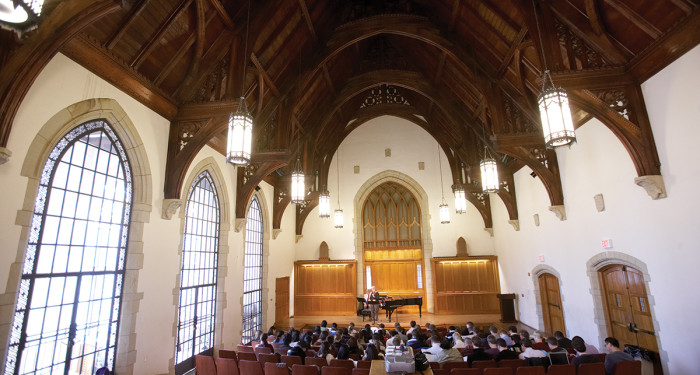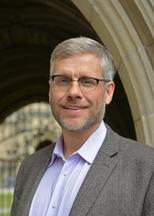
Pre-concert Talk: Philippa Ovenden and Anders Winroth
- This event has passed.

Join us for a free 30-minute lecture before each Classics Series concert. These engaging lectures cover the repertoire, composer insights, and secrets from soloists. Please join us for this FREE learning opportunity!
Carmina Burana
Guest speakers:
Philippa Ovenden, PhD candidate at Yale University in Music History
Anders Winroth, Birgit Baldwin Professor of History at Yale University
Carl Orff’s Carmina Burana has awed audience members for decades. Join two Yale University professors discuss the old Latin text and its musical setting to give you a deeper understanding of this monumental work.

Philippa Ovenden
Originally from the Orkney Islands in Scotland, Pippa Ovenden (2015) is a PhD student in Music History. She was an undergraduate at the Royal Academy of Music in London (RAM), during which time she spent a year as an ERASMUS exchange student at the University of the Arts in Berlin. She graduated from the RAM in 2013 with the Roy Burcher Prize for highest ranking final recital in Historical Performance. She holds an MMus from King’s College London, where she wrote her Master’s thesis, supervised by Emma Dillon, on the relationship between education, spirituality, and music in a late fifteenth-century German-speaking Dominican convent. Her research interests lie in 14th- and early 15th-century French and Italian song, instrumental music, and improvisation. Pippa enjoys performing music of a variety of genres from Bach Cantatas to experimental pop on recorders and keyboards, both historical and electric.

Anders Winroth
Professor Winroth specializes in the history of medieval Europe, especially religious, intellectual and legal history as well as the Viking Age. He teaches both halves of the survey lecture course in medieval history, seminars in religious, legal, intellectual, and Scandinavian history. His new book, The Conversion of Scandinavia: Vikings, Merchants, and Missionaries in the Remaking of Northern Europe, argues for a radically new interpretation of the conversion of Scandinavia from paganism to Christianity in the early Middle Ages (Yale Press, December 2011).
In 2003, Winroth was named a MacArthur Fellow by the John D. and Catherine T. MacArthur Foundation, which honors individuals for the originality and creativity of their work and the potential to do more in the future. Winroth is credited with showing that manuscripts previously thought to be abbreviations of the standard text are actually early versions of the text. “This painstaking analysis would have been impossible absent his mastery of canon law, command of medieval Latin, and aptitude for paleographic reconstruction of materials that exist primarily in the form of unedited medieval manuscripts,” the MacArthur Foundation stated. “By reversing the chronology of the earliest publications in canon law, Winroth opens new avenues for interpreting its origins and development.”
Winroth received his Ph.D. from Columbia University in 1996 and was the Sir James Knott Research Fellow at the University of Newcastle-upon-Tyne 1996-1998. He joined the Yale faculty as an assistant professor in 1998, was promoted to associate professor in 2003 and to full professor in 2004. He was the chair of the Medieval Studies Program 2005-2007.

